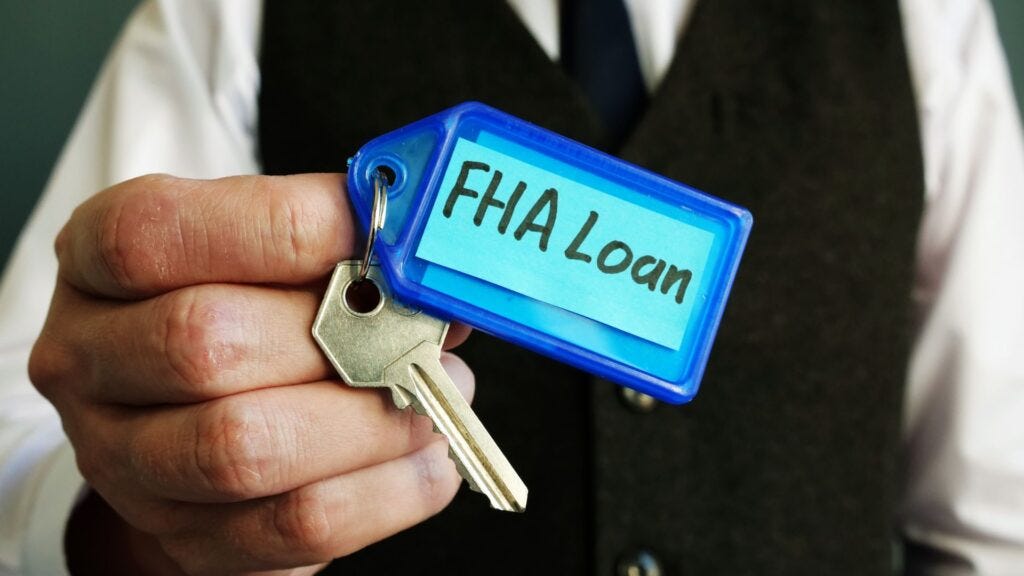Benefits of an FHA Loan
Welcome to our comprehensive guide on the benefits of an FHA loan. As a leading expert in the field of mortgage financing, we understand the importance of providing accurate and detailed information to help you make informed decisions about your home loan options.
What is an FHA Loan?
An FHA loan, also known as a Federal Housing Administration loan, is a mortgage loan insured by the FHA, which is a part of the U.S. Department of Housing and Urban Development (HUD). This type of loan is designed to make homeownership more accessible to individuals and families with lower credit scores or limited down payment funds.
Benefits of an FHA Loan
Lower Down Payment Requirements
One of the key advantages of an FHA loan is the lower down payment requirement. While conventional loans typically require a down payment of at least 20% of the purchase price, an FHA loan allows borrowers to put down as little as 3.5%. This makes homeownership more attainable for first-time buyers or those with limited savings.
Flexible Credit Requirements
Unlike conventional loans, which often require a high credit score, FHA loans are more forgiving when it comes to credit qualifications. Borrowers with credit scores as low as 580 can still be eligible for an FHA loan, although a higher score may be required by some lenders. This flexibility opens up opportunities for individuals who may have experienced financial challenges in the past.
Competitive Interest Rates
FHA loans offer competitive interest rates, which can result in significant savings over the life of the loan. By securing a lower interest rate, borrowers can reduce their monthly mortgage payments and potentially save thousands of dollars over the term of the loan.
Mortgage Insurance
Another benefit of an FHA loan is the availability of mortgage insurance. This insurance protects the lender in case the borrower defaults on the loan. While mortgage insurance is an additional cost, it allows borrowers to qualify for a loan with a lower down payment and more lenient credit requirements.
Streamlined Refinancing
If you already have an FHA loan, you may be eligible for streamlined refinancing. This process allows borrowers to refinance their existing FHA loan with minimal documentation and underwriting requirements. Streamlined refinancing can help homeowners take advantage of lower interest rates or change the terms of their loan without going through a lengthy and complex approval process.

In conclusion, an FHA loan offers numerous benefits that make homeownership more accessible and affordable for many individuals and families. From lower down payment requirements to flexible credit qualifications and competitive interest rates, an FHA loan can be an excellent option for those looking to purchase or refinance a home. If you are considering an FHA loan, we encourage you to consult with a qualified mortgage professional to explore your options and determine if it is the right choice for you.
Frequently Asked Questions about the Benefits of an FHA Loan
1. What is an FHA loan?
An FHA loan is a mortgage loan insured by the Federal Housing Administration (FHA). It is designed to help homebuyers, especially those with lower credit scores or limited down payment funds, to qualify for a mortgage.
2. What are the main benefits of an FHA loan?
The main benefits of an FHA loan include lower down payment requirements, more lenient credit score requirements, and the potential for lower interest rates compared to conventional loans.
3. How much down payment is required for an FHA loan?
An FHA loan typically requires a minimum down payment of 3.5% of the purchase price of the home.
4. Can I qualify for an FHA loan with a low credit score?
Yes, FHA loans are more lenient when it comes to credit scores. Borrowers with credit scores as low as 580 may be eligible for an FHA loan, although a higher score may be required by some lenders.
5. Are FHA loans only for first-time homebuyers?
No, FHA loans are available to both first-time and repeat homebuyers. However, there are certain restrictions on the number of FHA loans a borrower can have at the same time.
6. Can I use an FHA loan to buy a fixer-upper?
Yes, FHA 203(k) loans are specifically designed for purchasing and renovating fixer-upper properties. These loans provide funds for both the purchase and renovation costs.
7. Are there any income limitations for FHA loan eligibility?
No, there are no specific income limitations for FHA loan eligibility. However, borrowers must be able to demonstrate their ability to repay the loan and meet the lender’s requirements.
8. Can I refinance my existing loan into an FHA loan?
Yes, it is possible to refinance an existing loan into an FHA loan through the FHA Streamline Refinance program. This program offers simplified documentation and reduced underwriting requirements.
9. Do I have to pay mortgage insurance on an FHA loan?
Yes, FHA loans require mortgage insurance premiums (MIP). However, the MIP can be paid upfront or added to the loan amount, and it can be canceled once the loan-to-value ratio reaches a certain level.
10. Can I use an FHA loan to buy a second home or investment property?
No, FHA loans are intended for primary residences only. They cannot be used to finance the purchase of a second home or investment property.




